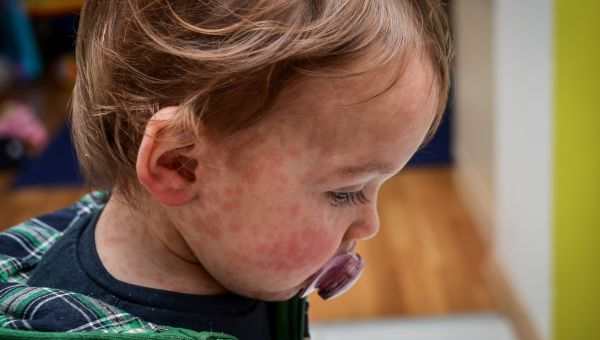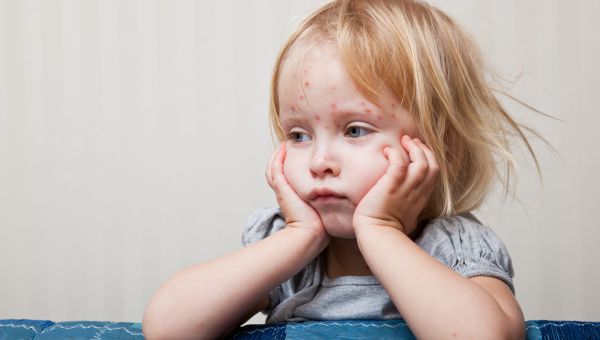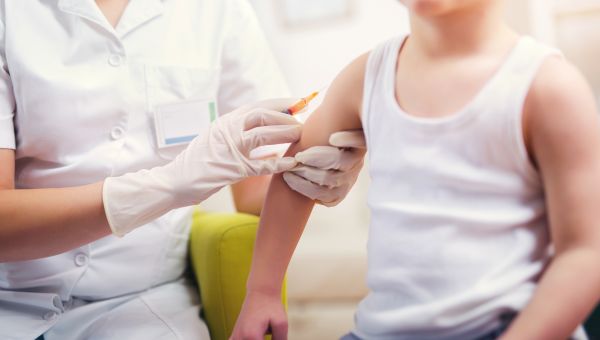5 important facts about measles
Get the truth about the disease that’s been making a worrisome comeback.
Updated on May 16, 2025

For years, people in the United States didn't have to think about measles very much. That's because a safe and effective vaccine to protect against this viral infection has been available for decades. In fact, in 2000, the U.S. declared measles to be eliminated.
But measles has come back in recent years as a potential threat, due to declining vaccination rates. Here’s what to know about this highly contagious infection, and what you can do to protect yourself and your community.

Early symptoms are flu-like
Measles symptoms can first mimic those of a bad cold or a nasty flu. The signs come in stages, starting off with a high fever, runny nose, watery eyes, cough, and sore throat. Tiny white spots may also pop up inside the mouth within two to three days. Three to five days after symptoms first appear, a non-itchy red rash forms at the hairline and can spread all over the body.

It is very contagious
Measles spreads easily—much more easily than COVID. As many as 9 in 10 people without immunity may become infected if they encounter a person with the virus.
An infected person can pass the virus through the air, usually by coughing or sneezing. The virus can stay in the air or on contaminated surfaces for up to two hours. If you breathe that air or touch an affected surface and then touch your nose or mouth, you risk becoming infected, even long after the infected person has left the area.

There is no specific treatment for measles
With plenty of rest and hydration, measles symptoms should subside within a week or two. Your healthcare provider (HCP) may suggest ways to ease symptoms, such as using a humidifier for a cough or taking ibuprofen for a fever. If your child is infected, keep them away from other children to avoid spreading the disease. Contact an HCP if symptoms don’t improve or seem to worsen. Watch for symptoms such as ear pain, pulling at the ear, and sleep troubles, since about 1 in 10 children with measles also develop ear infections. Shortness of breath, chest pain, or a cough with sputum may be signs of pneumonia.

Adults can get measles, too
Measles is commonly known for affecting kids. But unvaccinated adults and those with low immunity or a weakened immune system are susceptible, too. Complications for adults can be severe, especially for people over age 20, people with compromised immune systems, and pregnant people. In pregnancy cases, the disease may contribute to higher chances of early labor, miscarriage, and low birth weight. Hospitalization for complications is common, especially for people who are unvaccinated. Measles kills up to 3 of every 1,000 people who are infected.

Measles can be prevented
Measles is a one-time disease. In other words, if you’ve already had it, you won’t contract it again. But for those people who haven’t previously had the infection, vaccination against measles is the best way to protect against the illness. All children should receive two rounds of the measles, mumps, and rubella (MMR) vaccine by age 6. Adults who aren’t immune should get at least one round of the shot. The more people who are vaccinated, the less likely the infection will spread.

Centers for Disease Control and Prevention. Measles (Rubeola): Measles Cases and Outbreaks. May 2, 2025.
Centers for Disease Control and Prevention. Measles (Rubeola): History of Measles. May 9, 2024.
Centers for Disease Control and Prevention. Measles (Rubeola): Measles Symptoms and Complications. May 9, 2024.
Centers for Disease Control and Prevention. Measles (Rubeola): How Measles Spreads. April 18, 2024.
World Health Organization. Measles. November 14, 2024.
Mayo Clinic. Measles. April 23, 2025.
KidsHealth.org. Measles (Rubeola). February 2025.
March of Dimes. Rubella and Pregnancy. August 2021.
Centers for Disease Control and Prevention. Measles (Rubeola): Top 4 Things Parents Need to Know about Measles. Page last reviewed November 5, 2020.
NYC Health. Measles Frequently Asked Questions. Accessed May 6, 2025.
More On


video

slideshow


video


video
